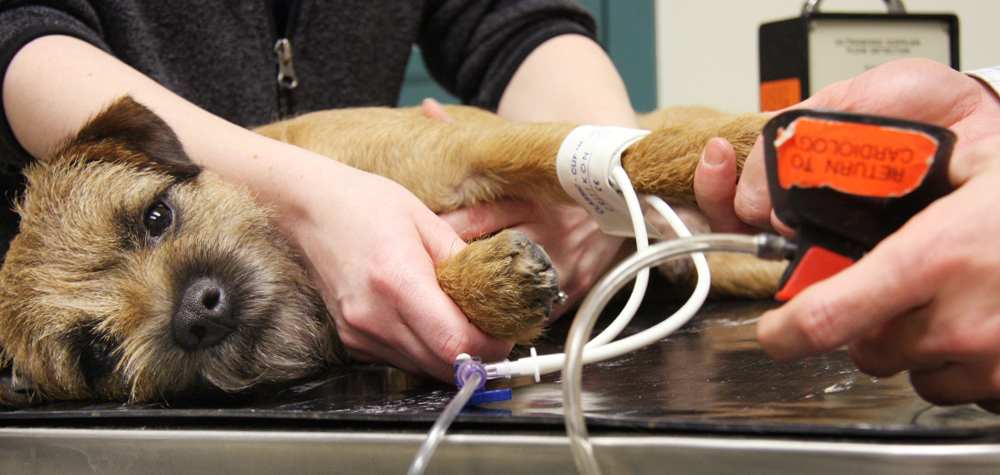Heart murmurs in pets, particularly in dogs and cats, are a common concern among pet owners. While a heart murmur itself isn’t a disease, it is often an indication of an underlying heart condition. If your pet has been diagnosed with a heart murmur, it’s crucial to understand its cause and determine the necessary steps for treatment or management. A vet cardiologist specializes in diagnosing and treating heart murmurs, providing expert care to ensure your pet’s heart health is properly monitored and managed.
In this article, we’ll explore how a vet cardiologist can help with heart murmurs in dogs and cats, the significance of heart murmurs, and what you can expect during a veterinary cardiology consultation.
What is a Heart Murmur?
A heart murmur is an abnormal sound produced by blood flow in the heart. It is often heard through a stethoscope as a whooshing or swishing noise. Murmurs can range in severity from mild to severe, depending on the underlying cause.
In pets, heart murmurs are classified into grades, with grade I being very soft and barely audible, and grade VI being extremely loud and easily detectable. The murmur itself does not necessarily indicate a life-threatening condition, but it serves as an important signal that there may be a problem with the heart.
There are two main types of heart murmurs:
- Innocent or Physiological Murmurs: These are not caused by heart disease and may occur in puppies or kittens due to the normal growth and development of their heart. They typically resolve on their own.
- Pathological Murmurs: These murmurs are caused by heart disease or other cardiovascular issues and can indicate a serious problem such as a valve defect, heart failure, or other structural heart abnormalities.
How a Vet Cardiologist Can Help Diagnose the Cause of the Murmur
When your pet is diagnosed with a heart murmur, a vet cardiologist will conduct a thorough examination to identify the root cause. This process involves several steps to ensure an accurate diagnosis:
- Physical Examination: The vet cardiologist will start by listening to your pet’s heart using a stethoscope, assessing the type, timing, and intensity of the murmur. The location of the murmur in the heart and any associated symptoms (such as coughing, lethargy, or difficulty breathing) can provide valuable clues.
- Detailed History: Understanding your pet’s medical history, age, breed, and lifestyle is critical. Some breeds are more prone to heart conditions than others. For example, larger dog breeds like Dobermans and Boxers are often at higher risk for certain heart diseases.
- Diagnostic Tests: Once a murmur is detected, a vet cardiologist may recommend further diagnostic tests to evaluate your pet’s heart function more closely. These may include:
- Echocardiogram (Ultrasound): This imaging technique provides a detailed view of the heart’s structure and function. It allows the cardiologist to observe the heart valves, chambers, and blood flow, helping to identify any abnormalities that might be causing the murmur.
- Electrocardiogram (ECG): This test measures the electrical activity of the heart, helping to detect arrhythmias (irregular heartbeats) that may contribute to or result from the murmur.
- Chest X-rays: X-rays help to evaluate the size and shape of the heart and check for signs of fluid buildup in the lungs, which could be a sign of heart failure.
- Blood Tests: Certain blood tests can help determine if there are any markers indicating heart stress, kidney dysfunction, or other issues that could be related to the heart condition.
Through these methods, a vet cardiologist can pinpoint the cause of the murmur and recommend the best course of action.
Common Causes of Heart Murmurs in Dogs and Cats
There are several common causes of heart murmurs in pets. Some of the most frequent ones include:
- Mitral Valve Disease: This is one of the most common causes of heart murmurs in dogs, particularly small breeds like Cavalier King Charles Spaniels. The condition occurs when the mitral valve, which controls blood flow between the heart’s left atrium and ventricle, becomes leaky and allows blood to flow backward.
- Heartworm Disease: Heartworms can cause severe damage to the heart and lungs in both dogs and cats. As the worms grow in the heart and pulmonary arteries, they can obstruct blood flow and lead to heart murmurs, along with other symptoms like coughing and exercise intolerance.
- Cardiomyopathy: This condition refers to diseases of the heart muscle and is more commonly found in cats, especially in breeds like Maine Coons. Cardiomyopathy can lead to heart failure and cause murmurs due to the reduced ability of the heart to pump blood effectively.
- Congenital Heart Defects: Some pets are born with structural defects in the heart, such as a hole in the heart or malformed heart valves. These defects can cause abnormal blood flow and result in heart murmurs, often diagnosed in young puppies or kittens.
- Aortic Stenosis: This is a condition where the aortic valve narrows, making it harder for blood to flow from the heart to the rest of the body. This can lead to a murmur, especially in certain dog breeds such as Golden Retrievers and Rottweilers.
Treatment Options for Heart Murmurs
Once the underlying cause of the heart murmur is identified, a vet cardiologist will develop a treatment plan tailored to your pet’s specific condition. Treatment options vary based on the severity and cause of the heart murmur and may include:
- Medications: Many heart conditions can be managed with medications that help regulate blood flow, control heart rate, and reduce fluid buildup. Common heart medications for pets include:
- ACE inhibitors: To relax blood vessels and reduce the workload on the heart.
- Diuretics: To help remove excess fluid from the body, easing strain on the heart.
- Beta-blockers: To slow the heart rate and improve heart function.
- Surgical Intervention: In cases of congenital defects or advanced disease, surgery may be required to repair or replace damaged heart valves, correct structural abnormalities, or remove heartworms.
- Lifestyle Changes: Adjusting your pet’s activity level and diet can help manage the condition. For pets with heart disease, it’s often necessary to reduce stress and avoid strenuous exercise.
- Regular Monitoring: Heart conditions often require ongoing monitoring to assess the effectiveness of treatment and to track any progression. Follow-up visits with a vet cardiologist, along with repeat imaging and tests, are essential for ensuring your pet’s heart health remains stable.
How Vet Cardiologists Improve Your Pet’s Quality of Life
A vet cardiologist can significantly enhance your pet’s quality of life by:
- Early Detection: Catching heart conditions early through regular check-ups helps to prevent serious complications and provides a better prognosis.
- Tailored Treatment Plans: By assessing the specific cause of the heart murmur, a vet cardiologist can offer customized treatment options that are most effective for your pet.
- Ongoing Care: With regular check-ups and ongoing treatment, the vet cardiologist ensures that your pet’s heart condition is well-managed, helping them live a longer, healthier life.
- Peace of Mind: Knowing that your pet is receiving expert care and that you’re actively managing their heart health can bring peace of mind to pet owners.
Conclusion
If your dog or cat has been diagnosed with a heart murmur, consulting with a vet cardiologist is essential to determine the cause and explore the best treatment options. Whether the murmur is due to a congenital condition, heart disease, or another underlying issue, a vet cardiologist’s expertise ensures that your pet receives the highest quality of care. With proper diagnosis, treatment, and monitoring, many pets with heart murmurs can lead happy, healthy lives. So, don’t hesitate to reach out to a veterinary cardiologist if your pet is showing signs of heart issues—your furry friend’s heart health depends on it!

